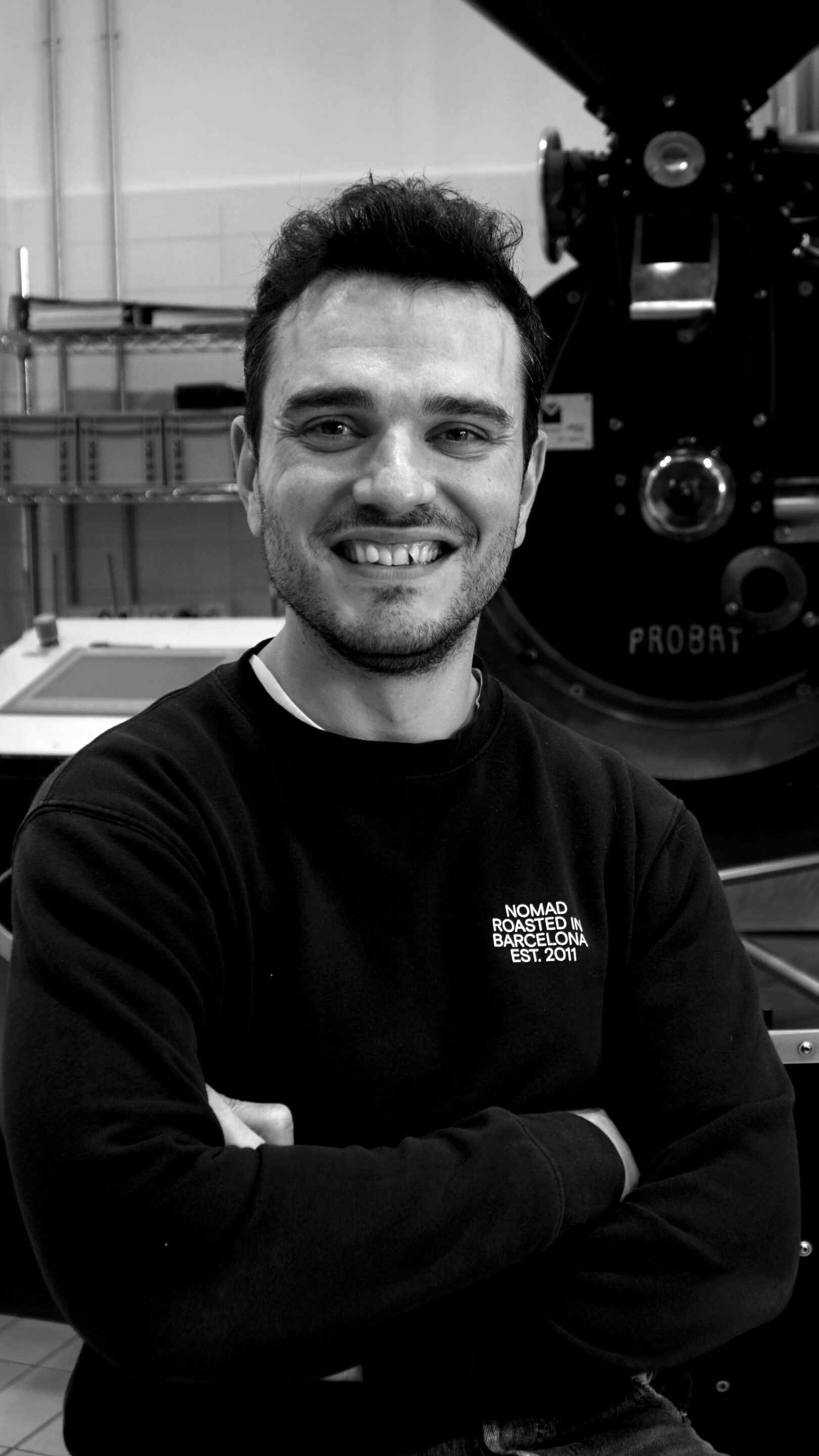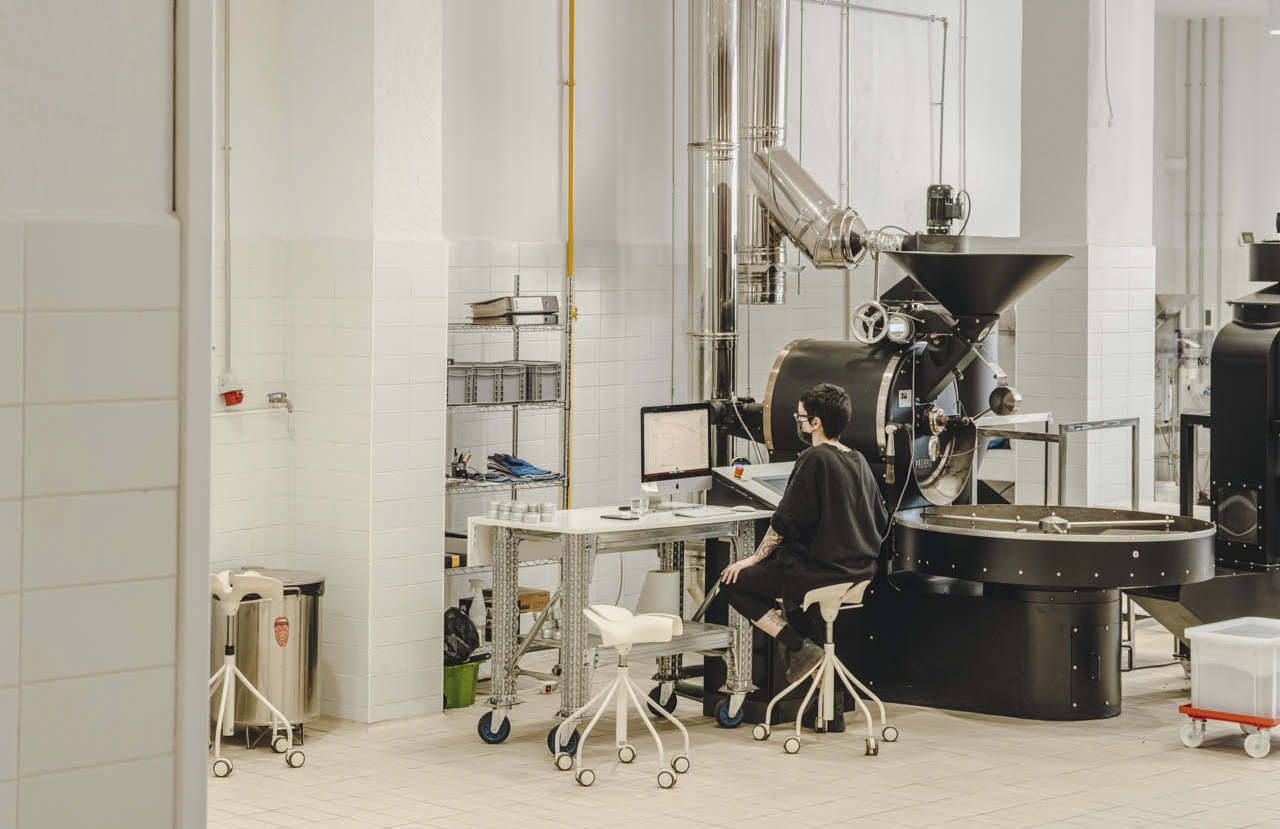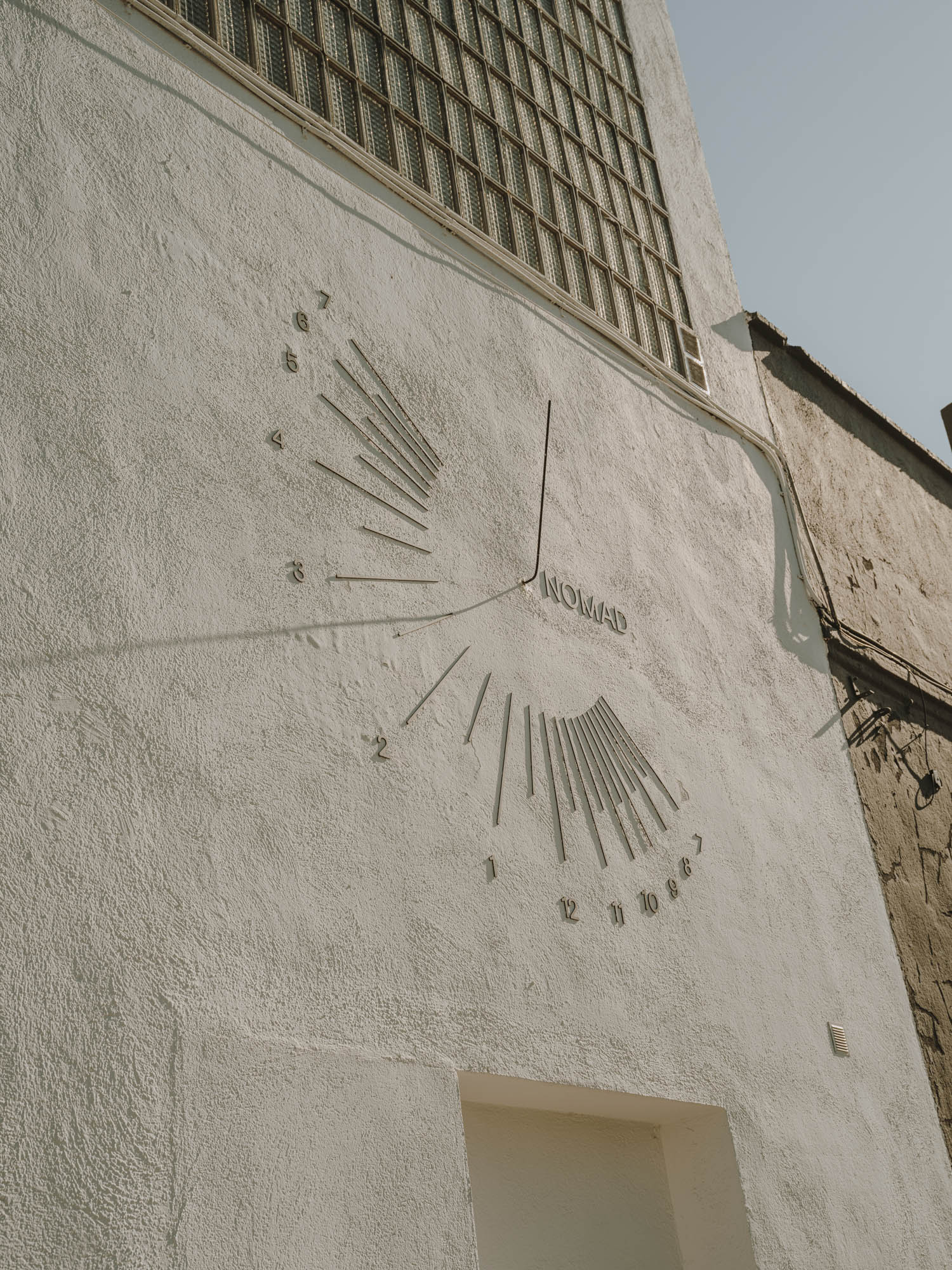July Brew Guide – Recipes From Our Roasters + Brewing Tips
Enjoy the delicious coffees from our July 2025 edition with this handy brew guide. Explore recipes from our roasters and handy tips.
There are many roasters out there with whom The Coffeevine has been working since the early beginnings. Relationships are everything in our community since so much of our business is based on trust. Over the years, I’ve seen many roasters grow, evolve, pivot, expand, contract and disappear all together.
Nomad from Barcelona is a roaster that we’ve been closely working with for many years and one that has always played to its own strengths. Now, more than ever.
What originally started out as Jordi Mestre’s coffee cart in London, eventually moved its operations to Barcelona where Jordi planted the Nomad seedling and has since watched it grow into a globally recognized specialty coffee company. Its iconic first café in Passatge Sert is a must-visit for coffee pilgrims and its clean white coffee bags can be found in coffee shops from South Korea to Canada.
When I attended Primavera Sound in the summer, I repeatedly saw Jordi and Nomad’s head of coffee Francisco Gonzales at the specialty coffee corner inside the festival where Nomad, together with fellow local roasters Hidden, Three Marks and Syra, served coffee to festival goers. A few weeks ago, during a return visit to the city, Nomad was so kind as to host a small cupping to taste and select the three winning coffees for the December 2022 box, some of which were supplied by Nomad as well as a few other roasters whose coffees I had brought with me.
Fran guided the cupping and we got a chance to taste the freshly landed Burundian coffee from Nemba alongside the Kenyan coffee from Faith Estate and a few others. The Burundian and Kenyan coffees made the final cut and together with fine coffees from Calendar Coffee and Morgon Coffee Roasters make up the final Coffeevine box of 2022.
Last week, I caught up with Fran over video call to chat about Nomad’s international expansion, its strong focus on keeping staff happy and which origins Fran is personally excited about.

THE COFFEEVINE (TC): “Fran, it’s good to see you. You’ve just returned from the Café Show in Seoul where you exhibited Nomad’s coffees as a guest of a local distribution and café partner in South Korea. How does it feel to be back on the road?”
Francisco Gonzales (FG): “It felt great after everything that happened with Covid19. Before the pandemic we had 20 people working here. During the pandemic, only 4. After we came out of this, we started to bring everyone back and we’re glad to say things are back in full swing now.”
TC: “Wow, does that include everyone in the cafés and the roastery?”
FG: “Well, prior to the lockdowns, we had four coffee shops. Frutas Selectas, Passatge Sert, Acid House and Everyday. We had to send everyone into furlough and only the production team stayed. We then decided to slim things down a bit. We closed Acid House and Everyday, for example. At the same time, we were already working on a new website and a new campaign aimed at home brewers prior to the pandemic.
We actually made three videos of different people making coffee at home and in that respect, the pandemic could not have come at a better time. It allowed us to weather the storm much better than we probably would have without all of this already being in place. We went from around 10 webshop orders a week to 120 orders a week, which has now stablised a bit, given that people are mostly back at work.
What we noticed is that many people started drinking better coffee at home during the lockdowns, essentially, a new group of home baristas was born in this time and when we reopened our cafés, we had a whole new customer group waiting to get coffee from us.”
TC: “It was also during the pandemic that you moved into your new production roastery, a building that is really beautiful and as clean as your coffee bags. It’s on center of the old industrial district of Poble Nou, kind of far away from the city center. I assume that this has allowed your business to grow a lot and be more focused?”
FG: “Definitely. The space where we previously had our roastery at what is now Frutas Selectas, had grown way too small for us. We needed a space where we could focus on roasting, packing, shipping and training, and we wanted to separate the production from the hospitality part.
The place we ended up moving into was partly selected because we still wanted to remain in Barcelona, this is something that’s very important to us, and partly, because there is this new project in Barcelona called @22, which plans to redevelop a large part of this former industrial zone into residential buildings and office space. We had to be very careful to choose the right building to avoid getting evicted in 2-3 years time.”
TC: “Going back to how the pandemic has changed many businesses, what, apart from moving your roastery and closing one café, have you guys discovered as some new ideas for the future of Nomad?”
FG: “Well, as I said before, we decided to close two cafés and to really focus more on roasting. We also finally had some time and space to think about our values. What is important to us at Nomad? Before Covid, we were always rushing around, going to events, making coffee, doing this and doing that. We never actually had a chance to really write down what we stand for.
We also reduced the number of cafés to try and be better employers. To properly listen to our people. If people who work here are happier, that also rubs off on our customers. With regards to quality, we also decided to grow at a more manageable pace because maintaining our quality levels is super important to us. We will always try to offer our customers the best coffees we can find on the cupping table.
Another value that we discovered or basically, a value that we formalised, is consistency. We’ve invested a lot in our roastery and in data to ensure that we can recreate the best Nomad profiles for every coffee time and time again. That is why we actually decided to buy a second identical roaster to the one we already use. This extra Probat UG22 will allow us to double our capacity with exactly the same roasting parameters. ”


TC: “Wow, that’s pretty interesting. Most of the time, people look to upgrade to a bigger roaster or to switch to something fancier than they had before but you guys are seemingly very content with the quality of your Probat roasters.”
FG: “100%. We thought about buying a Loring but if you’re then working with two different machines, you will get different cup profiles from the same coffee and we don’t want that.”
TC: “You are personally in charge of sourcing at Nomad. What are some of the most important relationships that you have?”
FG: “At this moment, we largely work with exporters and reputable coffee importers. We do have a, you could say, direct trade relationship with a producer in Costa Rica called Diego Robelo. This upcoming year, will be the sixth consecutive year that we’re working with him. He takes care of production as well as export. He fills the container, which comes directly to Barcelona and we take care of all the formalities at our end.
“I really like having a lot of origins on our menu to keep things interesting for our customers.”
We also have some similiar relationships in Colombia but there, the roles are separate. It’s usually another family member who takes care of the export part, you know how it is. One of the most imporant partners for us is Finca Chambakú, run by Juan Felipe Restrepo whose brother Jean works as the importer in Barcelona. And there are some others.”
TC: “Let’s talk a bit about this coffee from Nemba in Burundi. I know this processing station, actually. We had a coffee from there in our box last year and it was very well received. What can you tell me about this origin? What makes it unique?”
FG: “I love Burundi. We have been working with this washing station for three years and the coffee is always outstanding. The coffees have this really special cup profile that tastes like dried fruit, super sweet sugar and this year, the coffee from Nemba also tastes a bit like khaki.”
TC: “I have to admit. When I first read those tasting notes, I was a bit confused. I thought you meant the pants. Khaki pants. And I was like, what the f*** does that taste like? Then I remembered there is a fruit called Khaki which looks like an orange apple.”
FG: (laughs) “Yes, I can see that. Well, this coffee is just amazing. We sourced it via Sucafina with whom we’ve been working for quite a number of years and we always get early access to some of their finest coffees because we’ve been buying so much over the years.”
TC: “How many origins do you work with in total?”
FG: “We have a lot, especially right now. I really like having a lot of origins on our menu to keep things interesting for our customers, you know? Right now, these include El Salvador, Colombia, Ethiopia, Burundi and others.”
TC: “Listen, one question regarding your labels. I always wanted to know what the thinking behind it is. You have a bunch of letters that stand for the roast profile, the origin country and then the producer…”
FG: “This is the work of our design studio Basora. They take care of all of our branding and they came up with this idea to create a licence plate format for our labels that would represent the most important aspects of each coffee.”
TC: “OK, final question. You just got back from South Korea where you attended the Café Show in Seoul. What is the fascination that South Korean people have with Nomad or European roasters in general?”
FG: “Well, I don’t know to what degree they are fascinated with us in particular since we’re only just getting started there but we were lucky enough that the distributor who we’re working with really loved all about our coffees and decided to go all in on making Nomad popular there.
I just think that people there are very driven and inspired by champions. They love competing and they take it very seriously. At the show, the stands that had some former champion were always the ones with the biggest lines. We first need to get our reputation and our brand awareness up and then we will see.”
TC: “I mean, many other roasters have recently set up shop there, including The Barn and April. It wouldn’t be terribly far fetched to think that Nomad might one day have a coffee shop there, no?”
FG: “Oh, no, no, no. [laughs and waves]. We just closed two shops in Barcelona to focus on roasting and we’re not going to open a new café somewhere so far away where we don’t know the market. We’re very happy with our distribution partner and we’ll take things one step at a time.”
TC: “Thank you for your time!”
This coffee is part of our upcoming December 2022 Coffeevine box that also features other delicious coffees from Calendar Coffee and Morgon. To choose your ideal box and get in on the fun, just pop over to our shop now.
Enjoy the delicious coffees from our July 2025 edition with this handy brew guide. Explore recipes from our roasters and handy tips.
Looking for a fun opportunity to work closely with some of the world’s best coffees? Then this new role is for YOU! Check out the details.
Get a taste of Penang’s finest roaster Tongue Mission. This is the first time this fine Malaysian newcomer is featured in The Coffeevine!
Meet the finest roaster from Buenos Aires who is making its exclusive Coffeevine debut as the first Argentinean roaster this July
Subscribe to our newsletter for new box announcements, articles and special offers. No spam. Promise!
© 2025 All rights reserved The Coffeevine.
